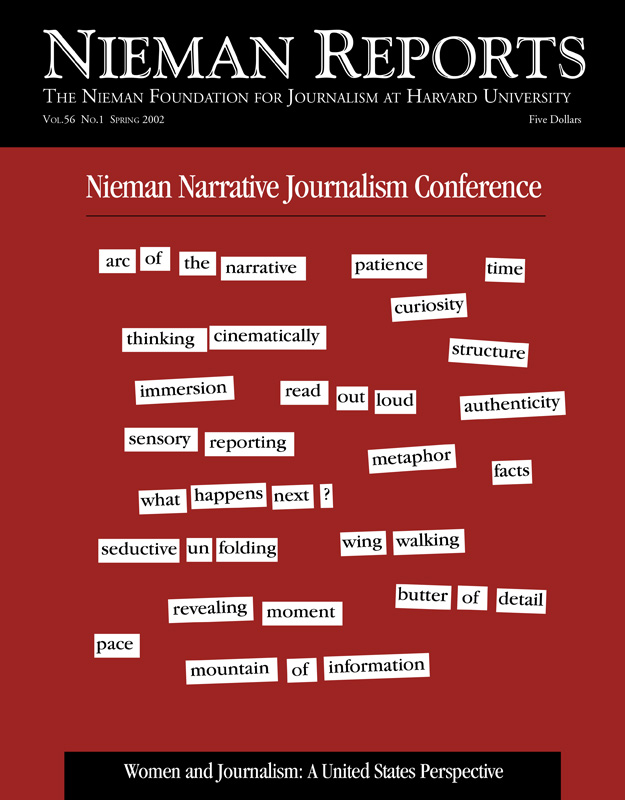Joseph Conrad, a very prolific writer, said that there are only two difficult things about writing: starting and not stopping. And that’s absolutely true. Because you’re professional journalists, I imagine that you have already started some large project that you’re doing on your own time that is not attached to your work, your everyday work.
Most writers have some other job besides just being a writer. They have to find the time, make the time, or steal the time. The first rule of not stopping and of getting work done is make yourself accountable. No one else is going to pick up on it. You’ve got to finish what you start, even if you don’t like it. That’s hard. Even if you’ve sort of fallen out of love with your project, you have to go through to the end. Finish it. You can always fix it.
How do you do it? How do you keep the work rolling while you’re working, say, at engineering? I was in test engineering, which is feast or famine, so I’d be working seven days a week, 12 hours a day. And I also commuted an hour to work. And had a family. And somehow I had to keep the work rolling.
Very simple things like keeping the manuscript with you at all times. Always keep it with you. That way you can always go back to it. Doesn’t have to be the whole manuscript. Another way to do this is to bring only the very last sentence that you worked on—where you left off, basically. Bring it with you on a sheet of paper or index card. Keep it on your person so that if you’re running around the building where you’re working, you take that five seconds to pull it out and look at it and say, “Okay, oh, maybe I’ll do this with it. Maybe I’ll do something else with it. Maybe I’ll fix it there.”
In keeping the work connected to me, somehow, even physically connected with me, it would stay there. Even if I was thinking about it just sort of subconsciously, it would be with me. I wouldn’t be away from it completely. Some days I’d get a sentence. Some days I’d get two sentences. Some days I wouldn’t get anything.
Use your time, steal the time, manage the time somehow.
A notebook? Yes, so you can always be taking notes. In fiction, what I do is I will often put on the mask of the character that I’m writing in the persona of. I go through the day in the point of view of my character. So put on the mask of the person that you’re writing, even if that person is in a nonfiction book. Think about how would this particular person see the world and details will come up and jump into you and stick with you. And you can get them down if you have that notebook, if you have that pen and that piece of paper, no matter where you are.
If you don’t write it down, it’s gone. You may not use what you write down. I’ve got notebook after notebook filled with details that I will never, ever use. But in sharpening my eye to look at the world and to see the world through other people’s eyes, now I’m gaining on the work.
If you got that notebook, take the notes, organize the notes. Sometimes when you can’t write at all, when you’re stuck and you don’t know what to do, you feel like you’re going nowhere, get out those notes. Go over them, highlight them, reorganize them. Take notes on the notes. Just get more organized so that when you will have time to write, you’ll have everything laid out right in front of you. Especially if you’re writing a narrative nonfiction. Sometimes those notes can help you write the book. It’s just organizing them in the right order there.
After that first admonition—hold yourself accountable—the second very important thing is that the work is on paper. The work is on paper. You can research all you want, you can go and do your legwork all you want, but, ultimately, that work has got to be on the paper. You can say, “Oh, I’ve been thinking about this novel, I’ve got it all in my head.” I can’t do anything with that. You’ve got to get down and work on the paper.



